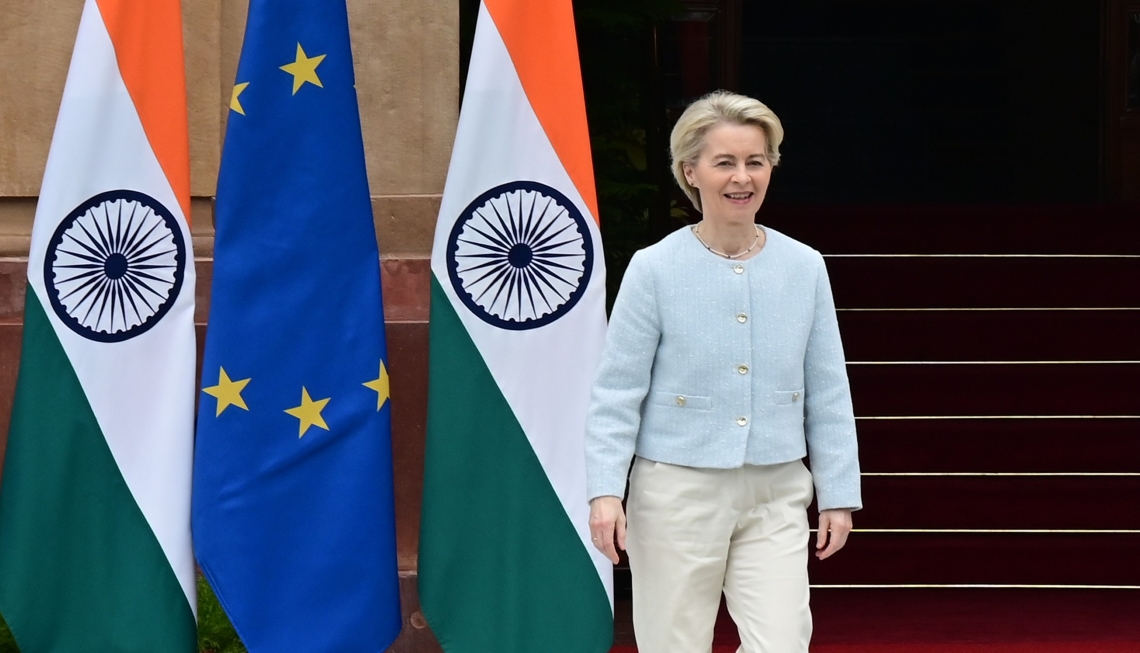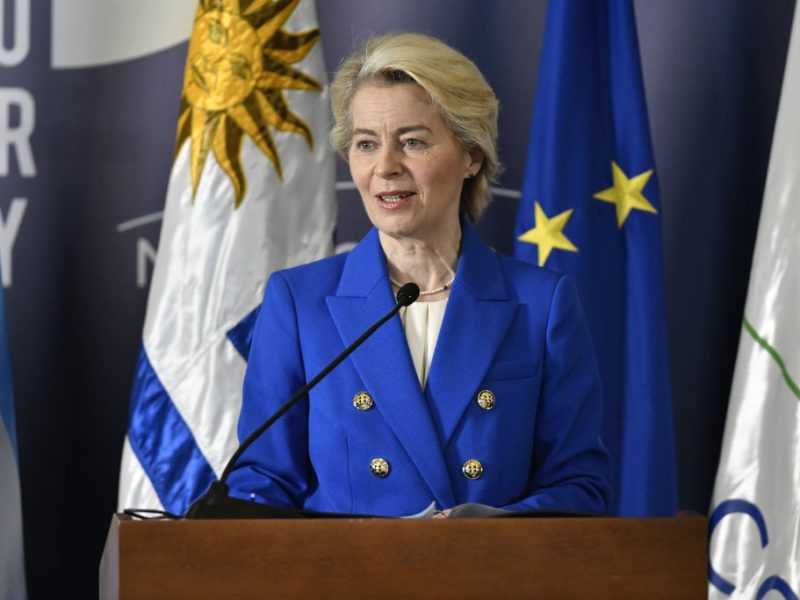The European Commission pledged on Wednesday to strengthen trade links with a range of Asian countries, and denounced the US and China for refusing to abide by international trade rules.
Maria Martin-Prat, deputy director-general at the Commission’s directorate-general for trade, reiterated the EU executive’s plan to finalise trade deals with India and Indonesia by the end of 2025.
She also noted that Brussels is “engaged very actively” to boost ties with a number of Southeast Asian countries, including the Philippines, Malaysia, and Thailand.
“This current situation, where ‘might is right’ is an approach to trade relations, is a very volatile approach, and one that hurts us and one that we should try to avoid,” Martin-Prat said on Wednesday at an event organised by Bruegel, a Brussels-based EU policy think-tank.
“So, there are reasons that are pressing that have developed in the last month that make for us very clear that the relationship with Asia is particularly important,” she added.
The comments come just weeks after Brussels and Washington agreed a framework deal that leaves most EU exporters to the US facing a minimum 15% levy – more than three times higher than the 4.8% average tariff prior to Donald Trump taking office in January.
They also come amid a growing push by Brussels to “de-risk” the EU economy from China. There are concerns about Beijing’s control over the global supply of critical minerals and its deepening ties with Moscow, whose war on Ukraine shows no sign of abating despite US-led ceasefire efforts.
Echoing Ursula von der Leyen’s remarks at an EU-China summit this June – which was widely deemed a flop – Martin-Prat said Europe’s ties to the world’s second-largest economy are currently at an “inflection point”.
Martin-Prat also denounced Beijing’s “unwillingness to address system concerns that have been put forward” by Brussels “in a very consistent and clear manner”.
Such issues include Beijing’s “distortion of the level-playing field” and failure to provide “real market access” to EU firms, as well as the impact of China’s export-led economy on Europe’s own struggling industrial base.
The EU’s trade deficit in goods with China grew to €305 billion in 2024, up from €297 billion in 2023, according to the Commission. China’s global trade surplus also grew to a record €843 billion in 2024.
Martin-Prat’s comments also coincided with the Commission, which oversees EU trade policy, unveiling the official texts of its trade deals with Mexico and the Mercosur bloc of Latin American countries, which includes Brazil and Argentina.
The deals, which must still be approved by EU countries and the European Parliament, are seen by many EU leaders as critical to diversifying the bloc’s trade links away from China and softening the impact of Trump’s tariffs.
“At a time when the old world order in global trade is being shaken up, it is more important than ever to grow this [free trade agreement] network,” EU trade chief Maroš Šefčovič told the Parliament earlier this year.
(mm)

